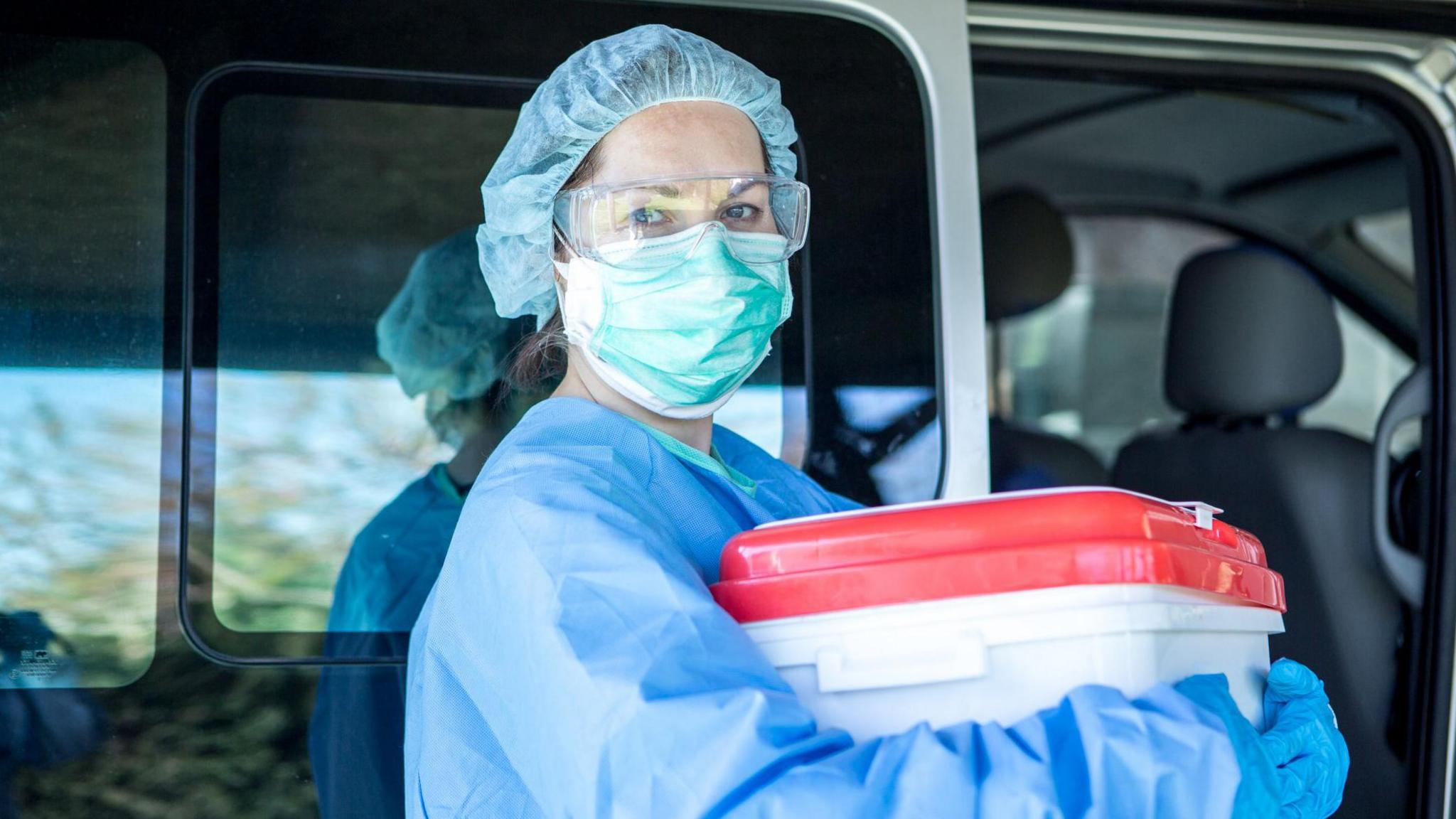Sister's death opened my eyes on organ donors - now I'm teaching about it
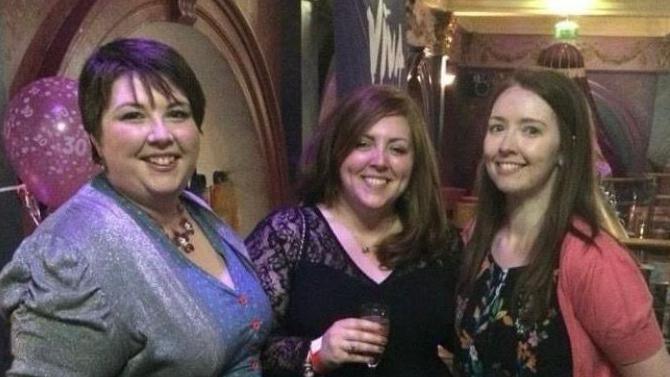
Ciara Hunter (left) pictured with her sister Joanne and late sister Clare
- Published
When Ciara Hunter's sister Clare died from a brain injury, aged just 32, talk turned to organ donation - and she said it wasn't a conversation they'd ever had as a family.
They sat in the room beside Clare to decide if she would have wanted to donate her organs – and, if so, which ones she would want to give.
It was eye-opening, said Ciara, and a moment that gave her a completely different understanding of the process.
Now five years on from that family tragedy, the teacher has used that experience to create new lessons on organ donation for school pupils aged 11 to 16.
"While we all hope and pray they're never in the situation I was in, or God forbid their families are in that situation, by even just teaching these resources a student can go home and say: 'We learned about this today', said Ciara, who works as an English teacher at Forthill Integrated College in Lisburn.
"It just opens those doors to have those conversations."
Ciara Hunter has helped create new lessons on organ donation for post-primary pupils
Clare Hunter died in hospital in 2020 after an arteriovenous malformation (AVM).
When her family were asked about organ donation, it was the first time they had discussed it together.
"I, like so many people, had misconceptions around organ donation and I assumed that if you had the [organ donation] card the hospital would somehow see it and know what to do," said Ciara.
"It was eye-opening and I had never even told my family I had the organ donation card.
"If I had just said, 'yes, I want to donate my organs', it maybe could have prompted that conversation with my family."
She praised the organ donation staff for being sensitive and kind, but the experience of these first conversations led her to now taking a role in creating lessons that are "all about information, not about persuasion".
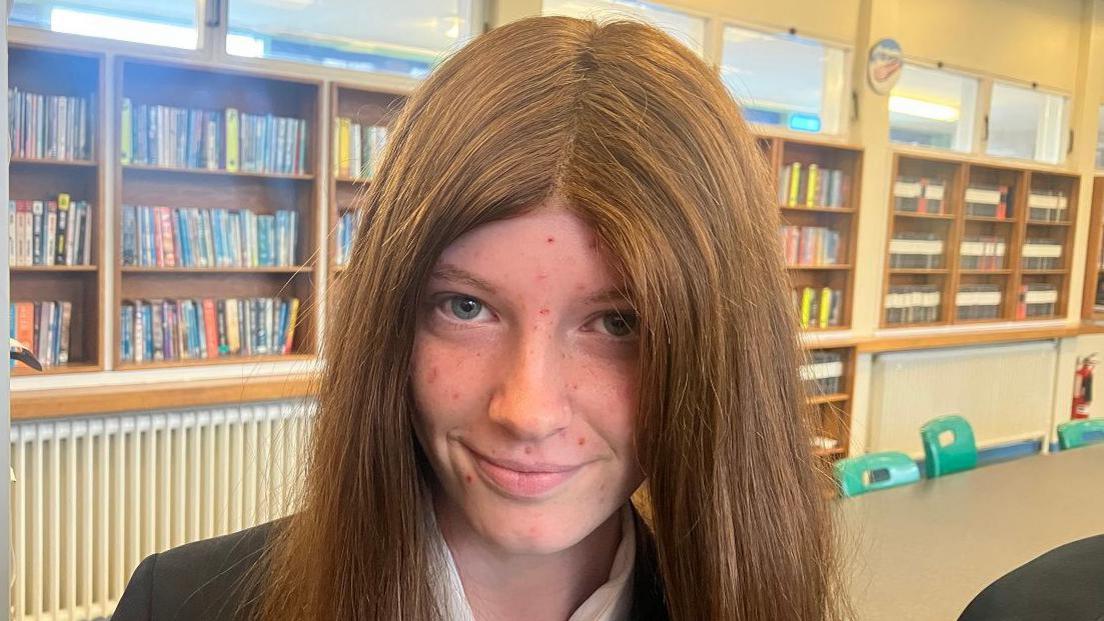
Forthill pupil Kayleigh said organ donation was "a very important conversation"
Some of the pupils at Forthill taking the lessons told BBC News NI how useful they had found them.
Sixteen-year-old Kayleigh said: "It's something that people should be made very aware of at a young age because anything can happen at any time – hopefully not, but it can.
"It's just a very important conversation that needs to be heard."
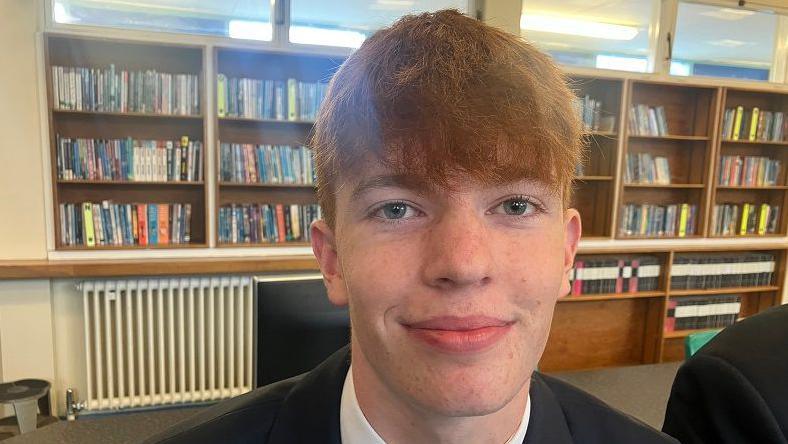
Corey said it was good to learn about the subject at a young age
Corey, 15, said: "I found it pretty interesting that you could just save someone's life and that you don't have to give all your organs, you could pick or choose what ones.
"It's good to educate them young so they know what it is and that it doesn't come up randomly and they know more about the subject, because it's something that needs to be known and talked about."
Josef, also 15, said it was a subject "I didn't know much about before".
He added: "It's good to learn about something at a young age so you're not smacked in the face with it when you're older."
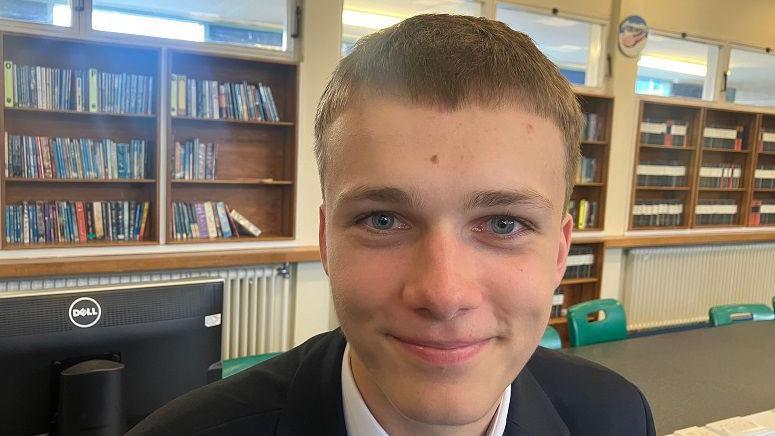
Josef said he had previously not known much about the subject
What are the organ donation lessons?
The lesson plans that Ms Hunter and other teachers have drawn up to teach children are available online, external and include information about the impact of organ donation on recipients.
They include the story of Dáithí Mac Gabhann, a young boy whose need for a heart transplant prompted a law change that brought Northern Ireland's organ donation rules into line with the rest of the UK.
It meant that adults in Northern Ireland have to opt-out, or be in an excluded group, in order to not be considered as a potential organ donor.
The lessons also have information on organs in the body and what is involved in being a donor.
Produced by the Public Health Agency (PHA) and Organ Donation Northern Ireland, they are also available in Irish.
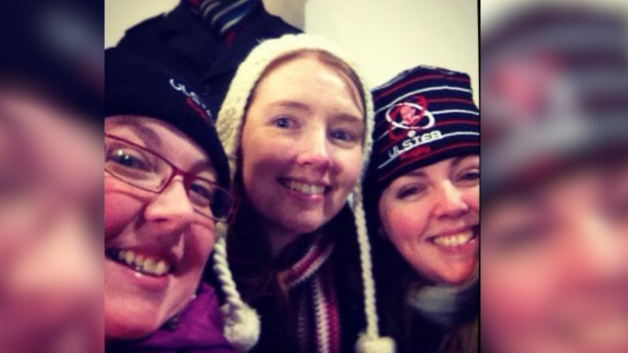
Ms Hunter's sister Clare (pictured in the middle) died in 2020
"It's not like you're trying to convince people that they have to donate their organs," said Ciara.
"I think the earlier that you can break that stigma and break that taboo that this is not something we talk about, the better."
Ciara said that, as a teacher, she was "passionate about giving young people the skills and the information to navigate their life".
The lessons allow the students to have the knowledge, the information and the understanding to make those decisions themselves, she added.
What school subjects will they be taught in?
Ms Hunter said that the lessons had been designed to be taught in an assembly and in a single class lesson.
"The nice thing about these resources is they're really straightforward and flexible," she said.
She said they could be taught in Science, Religious Education (RE) or Learning for Life and Work (LLW).
"In fact, as an English teacher, we could cover it in English and then create a task from that, allowing our students to write a speech or their own article about organ donation and whether they would or wouldn't and giving the reasons why.
"It's been created by teachers for teachers.
"We've made it as flexible as possible so that schools can fit it in."
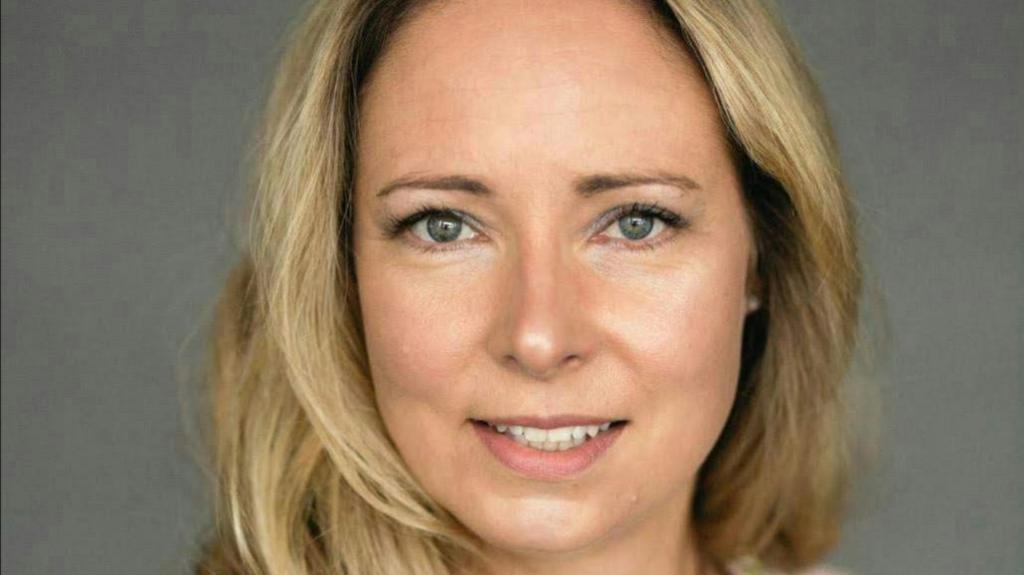
PHA manager Catherine McKeown hopes the lessons will empower people to make decisions
The Public Health Agency's (PHA) organ donation promotion manager Catherine McKeown said they were delighted to make the lessons available.
"Providing young people with the information they need to find out more about organ donation and to consider their decision around it is extremely important," she said.
She hopes the lessons will empower young people to make informed choices while being able to talk confidently about organ donation.
"The resources have been developed by teachers, for teachers, and will educate young people, in an age-appropriate manner, about the importance of donation and transplantation for individuals and society," she added.
Related topics
- Published31 May
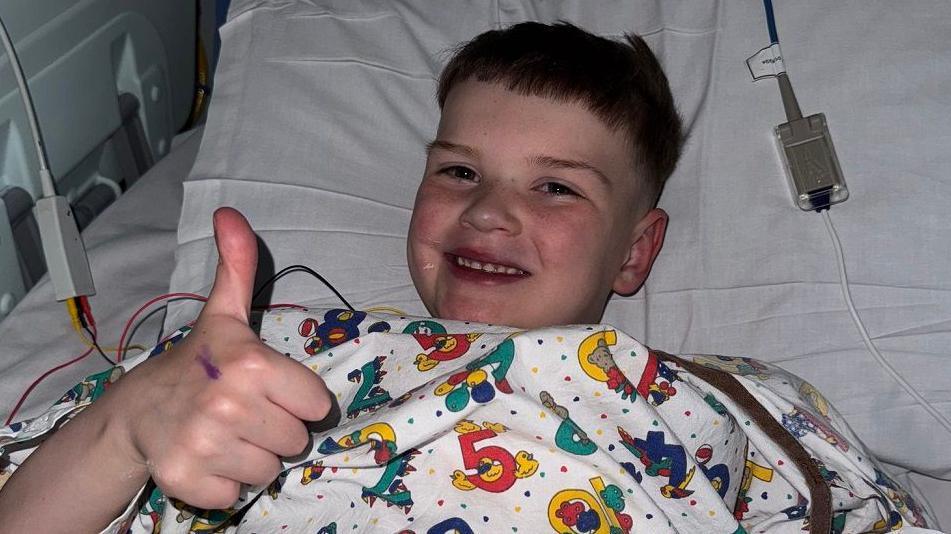
- Published20 February
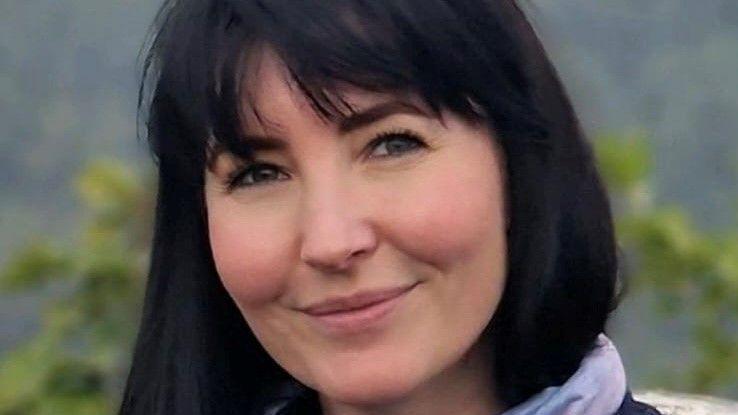
- Published1 June 2024

- Published27 August
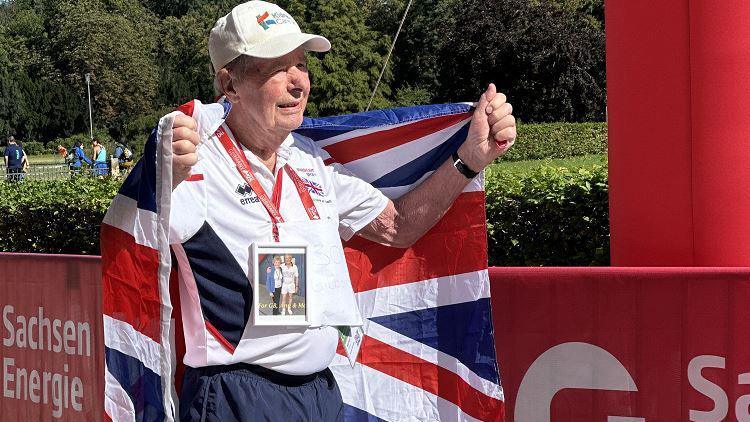
- Published10 July
